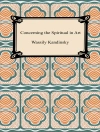Cultural and natural heritage are central to ‘Europe’ and ‘the European project’. They were bound up in the emergence of nation-states in the eighteenth and nineteenth centuries, where they were used to justify differences over which border conflicts were fought. Later, the idea of a ‘common European heritage’ provided a rationale for the development of the European Union. Now, the emergence of ‘new’ populist nationalisms shows how the imagined past continues to play a role in cultural and social governance, while a series of interlinked social and ecological crises are changing the ways that heritage operates. New discourses and ontologies are emerging to reconfigure heritage for the circumstances of the present and the uncertainties of the future.
Taking the current role of heritage in Europe as its starting point, Critical Heritage Studies and the Futures of Europe presents a number of case studies that explore key themes in this transformation. Contributors draw on a range of disciplinary perspectives to consider, variously, the role of heritage and museums in the migration and climate ‘emergencies’; approaches to urban heritage conservation and practices of curating cities; digital and digitised heritage; the use of heritage as a therapeutic resource; and critical approaches to heritage and its management. Taken together, the chapters explore the multiple ontologies through which cultural and natural heritage have actively intervened in redrawing the futures of Europe and the world.
Praise for Critical Heritage Studies and the Futures of Europe
‘Filled with many fascinating and diverse chapters, this book vividly demonstrates the dynamism and breadth of critical heritage study of, in, and entangled with Europe today’
Sharon Macdonald, Alexander von Humboldt Professor of Social Anthropology and Director of the Centre for Anthropological Research on Museums and Heritage (CARMAH) in the Institute of European Ethnology at Humboldt-Universität zu Berlin.
‘Far from being restrictive, let alone chauvinistic, the multiscalar European focus of this book confirms the breadth and relevance of current critical heritage studies. With contributions addressing such topical issues as climate emergencies, urban landscapes, cultural industries, new media and identity politics – be they written by established scholars or by emerging researchers – it is ‘Europe’ with all its shared grounds and recurrent divergences that comes into sharper relief. From this vantage point, readers of this compelling book will be better positioned for reflecting on and eventually influencing and challenging our heritage futures.’
Nathan Schlanger, Professor of Archaeology, École nationale des chartes, Paris.
‘This book addresses European heritage realities and futures through new voices, paradigms, and methods. It is a collage of tensions – practically a representation of Europe itself – through which to comprehend contemporary intersections of time, place, things, and meaning. It contributes to new vistas in heritage studies: the offer of design and imagination as methods; reckonings with data and climate change as seemingly uncontrollable actors; and the ongoing negotiation of ‘criticality’ in the making of our responsibilities for the past in the present’
Christopher Whitehead, Professor of Museology, Newcastle University.
Tabla de materias
List of figures
List of tables
Contributors
Preface and acknowledgements
Introduction
Rodney Harrison Nélia Dias, and Kristian Kristiansen*
Part I: Heritage and global challenges
Editors’ introduction to Part 1
1 Rethinking museums for the climate emergency
Rodney Harrison and Colin Sterling
2 From climate victim to climate action: heritage as agent in climate change mitigation discourse
Janna oud Ammerveld
3 Syrian refugees’ food in Lisbon: a heritage of food beyond national borders
Marcela Jaramillo
4 Relations with objects: a longitudinal case study
Katie O’Donoghue
Part II: Curating the city: rethinking urban heritages
Editors’ introduction to Part 2
5 Erosion and preservation of the cultural and geological heritage in mega city landscapes of the Global South: A geo-aesthetic inquiry
Peter Krieger
6 Recognising urban heritage written in water: Mapping fluctuating articulations in time and space
Moniek Driesse
7 Participatory design in the context of heritage-development: Engaging with the past in the design space of historical landscapes
Mela Zuljevic
8 The (over)touristification of European historic cities: a relation between urban heritage and short-term rental market demand
Łukasz Bugalski
9 Overtourism vs pandemic: the fragility of our historic cities
Maria Pia Guermandi
Part III: Digital heritages and digital futures
10 Datafied landscapes: Exploring digital maps as (critical) heritage
Stuart Dunn
11 #Womenof1916 and the heritage of the Easter Rising on Twitter
Hannah K. Smyth
12 The material and immaterial historic environment
William Illsley
13 Digitality as a cultural policy instrument: Europeana and the Europeanisation of digital heritage
Carlotta Capurro
14 De-neutralising digital heritage infrastructures? Critical considerations on digital engagements with the past in the context of Europe
Gertjan Plets, Julianne Nyhan, Andrew Flinn, Alexandra Ortolja-Baird and Jaap Verheul
Part IV: Postcolonial legacies: ‘European’ heritages beyond Europe
Editors’ introduction to Part 4
15 Heritage pharmacology and ‘moving heritage’: Making refugees, asylum seekers and Palestine part of the European conscience
Beverley Butler and Fatima Al-Nammari
16 How to tell the good guys from the bad guys…or not
Randall H Mc Guire
17 Traumatic heritage, politics of visibility and the standardisation of plaques and memorials in the city of São Paulo, Brazil
Márcia Lika Hattori
18 Lampedusa here and there: activating memories of migration in Amsterdam’s historic centre – a resource for whom?
Vittoria Caradonna
Concluding reflections
Afterword
Barbara Kirshenblatt-Gimblett
Barb Index
Sobre el autor
Kristian Kristiansen is Professor of Archaeology at University of Gothenburg, and affiliated professor at Copenhagen University. His research spans from the prehistory of western Eurasia to critical heritage. He was one of the initiators of the European Association of Archaeologists, and is now working mainly within the new interdisciplinary field of archaeogenetic research, and its implications for both prehistory and the present. He has published 25 books, as author, co-author and editor/co-editor, six of which are on Cambridge University Press, and more than 150 peer reviewed papers.












